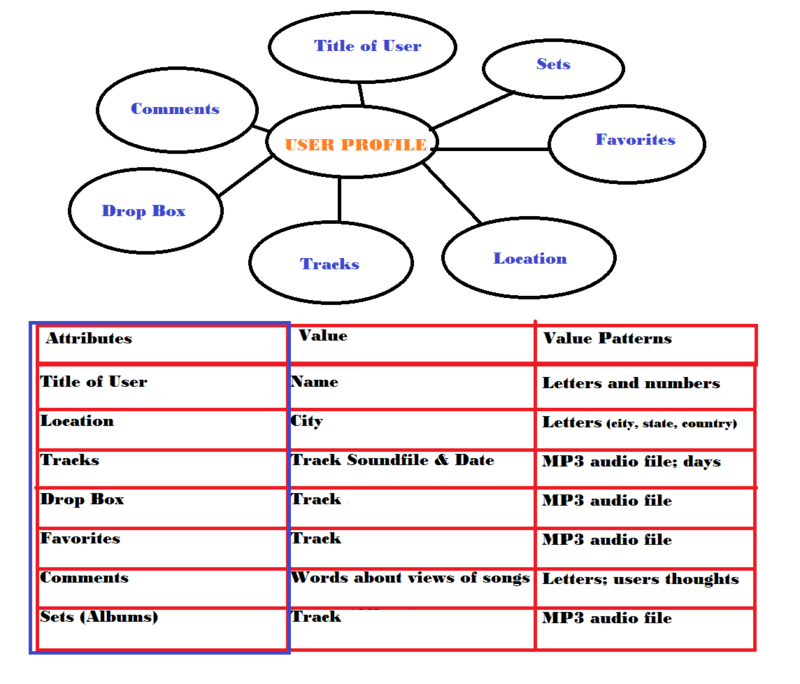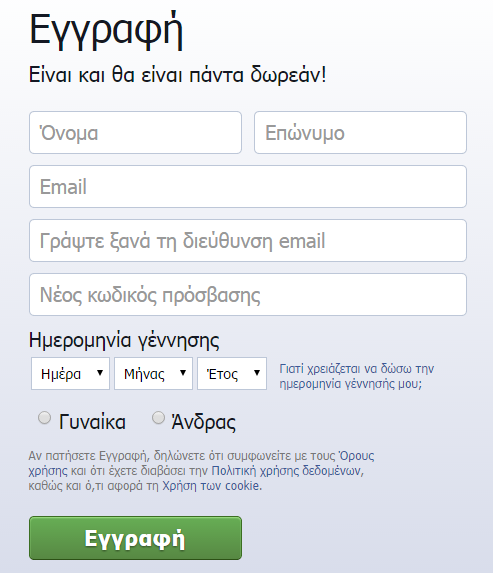Mediaobjectnikosssss
user profile
WHAT IS
According to the wikipedia entry of "user profile", "a user profile is a visual display of personal data associated with a specific user, or a customized desktop environment. A profile refers therefore to the explicit digital representation of a person's identity. A user profile can also be considered as the computer representation of a user model.A profile can be used to store the description of the characteristics of person. This information can be exploited by systems taking into account the persons' characteristics and preferences."
According to Microsoft, "your user profile is a collection of settings that make the computer look and work the way you want it to. It contains your settings for desktop backgrounds, screen savers, pointer preferences, sound settings, and other features. User profiles ensure that your personal preferences are used whenever you log on to Windows. A user profile is different from a user account, which you use to log on to Windows. Each user account has at least one user profile associated with it."
According to Facebook, "Your profile, is your collection of the photos, stories and experiences that tell your story. Your profile also includes your Timeline". This definition can be found in their Glossary of Terms, where other interesting approaches can be found (what is a friend?Friends are people you connect and share with on Facebook and what is a list?Lists are an optional way to organize your friends on Facebook. )
According to Lucas who maintains online profiles, "the user profile from online forums to social networks cant be explicit digital representations of one's identity as they capture very specific moments and contain very specific data than can be manipulated as a user wishes"
The profile consists in a first level from a nickname, a password and a profile picture.
A user profile is a collection of collections. Collections of settings , of metadata associated with a specific user ,collections of photos, etc. .It is supposed to ensure authentication , permissions, rights, and maintainance of personal preferences. It differs from a user account, beeing a more public expression of it. However, in order one to create a profile, must create an account This process of building ones user profile beginns indeed with an account creation(registration ),accepting terms of services, and verification (via personal email),and later on moves to public profile construction, adjusting personalised settings and filling personal information in existing categories.
The design model of the user profile is the one of the database. Moreover this database driven formation of the online profile is happening within online structures that are themselves databases.
It seems that identity and database have a structural relationship in the world of user profiles. According to Mark Poster, because of its structure contitutes individuals by manipulating bits of information . This illustrates how an identity is formed within a user profile: through language , data entries and the relationships formed among data within the database.
>User profiles are linguistic constructions, which occur in very linguistic structures, starting from the source code of websites we use to computers as linguistic devices and our linguistic-textual participation)
MEDIATES
Profile is a linguistic construction that mediates a social construction: one;s identity/ies. By providing a very controled space and using controled vocabulary puts the individual in the position to enter data in the database that will regenerate the persons identity in the context of that system. This linguistic construction mediates at the same time the choices of the individual alltough they are hosted in very simplistic and restricting forms and they are not endless choices but choices from a list.>>> The use of these choices, from food preferences to the choices that affect what kind of data we contribute, show that our user profiles mediate also a controled curation of identity.
It also mediates the concept of personalisation/ customisation. Making (computer) systems more "friendly" to the users. In response to the notion of the invisible user, user profile nowadays can mediate the users' invisibility.
User profile assigns also that identity with specific regulations , duties and rights predetermined, therefore mediates power relations and control. These relationships are formed not only between the institution/corporation and the user but even among users themself. A feature of facebook, the report of a user, is examplary of that. Again this relationships can be traced as well within one's self: one of one;s identities controling another.Furthermore, power and control are based on the practise of one documenting him/herself while creating all this accounts and profiles. From a preselected range of choices, understandable from computers, one is documenting in a written record him self by self-classification and data entering. The public side of the record is visible when the profiles are active. But when they get deactivated or deleted or reported then the social networking company is the only one who has in its hands the documentation record.
PROFILING-PORTRAIT-USER
According to wikipedia, "In information science, profiling refers to the process of construction and application of profiles generated by computerized data analysis.". The idea here is that after algoritmhmic process the patterns that emerge are the profiles.??+?
Portrait is a very visual concept that can be found in any kind of art and includes normally a face and its charakteristics. In modern society , portrait relates with photography as a means to understand , monitor and document the world and the individual. Gallison and in their book Objectivity comment on the relation of the lense(from microscopes to cameras) with scientific objectivity, which they see a the suppression of some aspect of the self. Moreover, Evi Sambanikoy writes about the photographer as the reporter of the objectified subject.
Our portraits in our user profiles are our profile pics. The selfie corresponds to the "democratisation" of the use of the camera by individuals and appears succesfull in motivating people document themselves online.Ludovico and Cirio, in their "facetofacebook:smiling in the eternal party" refer to the face as the viewpoint as a major point of reference in the world, stronger even than names .They also argue that facebook profiles are so effecting in representing real people through a a specifi element:the profile picture.
User LEv manovivh, dan norman etc , debates on the term++.
Olia Lialina and Dragan Esp write about the movie TRON and the definition of the term user. One programm asks another: Do you believe in users? The other programm response positively and adds "if i dont have a user who WROTE me"? In another scene the account manager and the hacker are called USER by their programms. They argue that after the Internet reached the houses of the peope the term begin to mean all these people that need things made as simple as possible for them. The whole user friendly, user experience etc field makes their notion very visible. If the user is someone who doesnt understand the tools he is using, is not aware of their history, their medium specificity ,then a user profile is by default are profiles of people who dont know exactly how and why they are where they are .
sources etc
Mark Poster Olga Goriunova lexture. Computers as theater Olia lialina-turing complete user lecture, The General Purpose User Lev Manovich, How do you call a person who is interacting with digital media? Don Norman, Words Matter. Talk About People: Not Customers, Not Consumers, Not Users Dan Gillmore, we the media Al. Ludovico and Paolo Cirio.facetofacebook: Sambanikou Objectivity



